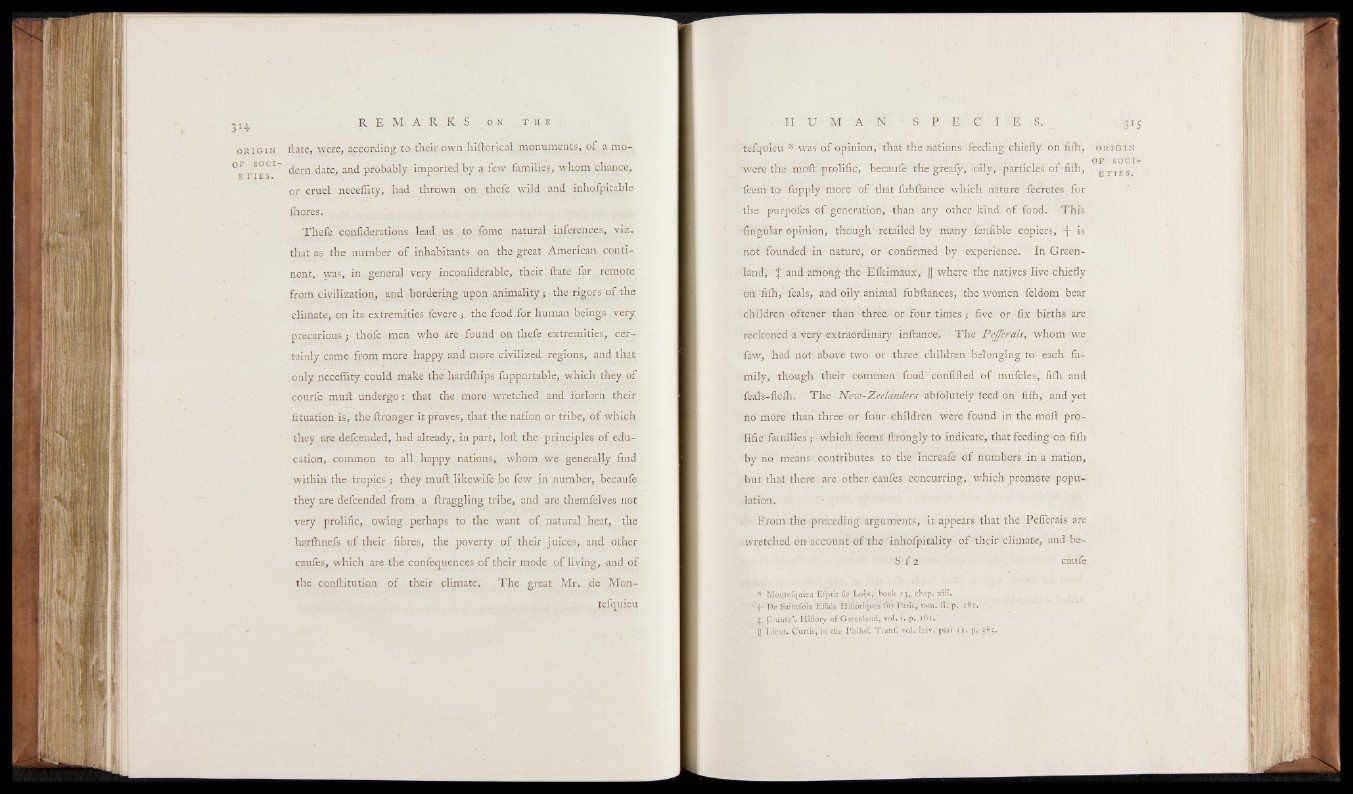
o r i g i n Rate, were, according to their own hiflorical monuments, of, a mo-
° e t i e s I_ dern date, and probably imported by a few families, whom chance,
or cruel neceffity, had thrown on thefe wild and inhofpitable
fliores.
Thefe confiderations lead us to.fome natural inferences, viz.
that as the number o f inhabitants on the great American continent,'
was, in general very inconliderable, their Rate-far remote
from civilization, and bordering upon animality j the rigors of the
climate, on its extremities fevere; the food for human beings very
precarious j thofe men who are ■ found on thefe extremities,- certainly
came from more happy and more civilized regions, and that
only neceflity could make the hardlhips fupportable, which they of
courfe muR undergo: that the more wretched and forlorn their
fituation is, the Rronger it proves, that the nation or tribe, o f which
they are defcended, had already, in part, loR the principles of education,
common to all happy nations, whom we generally find
within the tropics ; they muR likewife be few in number, becaule
they are defcended from a flraggling tribe,, and are themfelv.es not
very prolific, owing perhaps to the want o f natural heat, the
harflinefs o f their fibres, the poverty o f their juices, and other
caufes, which are the confequences o f their mode o f living, and of
the conflitution o f their climate. The great Mr. de Montefquieu
tefquieu * was of opinion, that the nations feeding chiefly on fifli,
were the moR prolific, becaufe the grealy, oily,, particles o f fifli,
Teem to fupply more -of that fubflance which nature fecretes for
the purpofes of generation, than any other kind, of food. This
■ Angular opinion, though retailed by many fenfible copiers, -(- is
not founded in nature, or confirmed by experience. In Greenland,
J and among the Elkimaux, || where the natives live chiefly
on fifli, feals, and oily animal fubfiances, the women feldom bear
. children ■ oftener than three, or four times; five or fix births are
reckoned a very extraordinary in Ranee. The Pejferais, whom we
faw, had not above two or three children belonging to each family,
though their common food confifled of mufcles, fifli and
feals-flefli. T h e Netv-Zeelanders abfolutely feed on fifli,' and yet
no more than three or four children were found in the moR prolific
families ; - which feems Rrongly to indicate, that feeding on fifli
by no means contributes to the increafe o f numbers in a nation,
but that there are other-caufes concurring, which promote population.
From the preceding arguments, it appears that the Pelferais are
wretched on account o f thé inholpitality o f their climate, and be-
■ S f 2 caufe
* Montefquieu Efprit de Loix, book 23, eliap. xiii.
‘ ■ ,j.- De Saintfoix Eflais Hiftoriqucs for Paris', tom. ii. p. 181. .
J Crantz’s Hiftory of Greenland, vol. i. p. 161.'
j| Lieuu Curtis, in the Philof. TrafiC vol,. lxiv. part 11. p. 385.
ORIGIN
OF SOCI ETIES'.